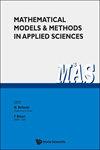刚果民主共和国东部巴什瓦哈部落高地地区农民参与联合动力的决定因素
IF 3
1区 数学
Q1 MATHEMATICS, APPLIED
Mathematical Models & Methods in Applied Sciences
Pub Date : 2023-01-01
DOI:10.12988/ams.2023.916838
引用次数: 1
摘要
把村民组织成农业协会有助于促进农民农业。面对许多压力,村民组织允许成员面对他们农场周围的挑战。他们通过社会包容的作用,也为该地区的社会经济发展作出贡献。面对这些证据,本研究试图确定刚果民主共和国东部巴斯瓦哈酋长高地地区农民联合动态的驱动因素。对409名和193名农民采取实证态度,回归结果表明,农民的原籍群体、婚姻状况、储蓄、获得信贷的机会、收入、土壤类型、环境信息来源、教育水平、开展的某些主要活动、肥料来源等因素都被考虑在内。结论是,农民对项目的贡献、他们对环境的了解以及他们对当地社区的了解都被考虑在内本文章由计算机程序翻译,如有差异,请以英文原文为准。
Determinants of participation in associative dynamics by farmers in the highland zone of the Baswagha chiefdom in eastern DRC
The grouping of villagers into agricultural associations helps promote peasant agriculture. Exposed to many pressures, village organizations allow members to face the challenges surrounding their farms. Through their role of social inclusion, they also contribute to the socio-economic development of the area. In the face of this evidence, the study seeks to identify the drivers of the associative dynamics of farmers in the highland zone of the Baswagha Chiefdom in eastern DR Congo. Adopting a positivist posture on both 409 and 193 farmers, the results of the regressions indicate that the farmer's group of origin, marital status, savings, access to credit, income, soil type, source of environmental information, level of education, certain main activities carried out, certain sources of fertilizer In the conclusion, the contributions of the farmers to the project, their knowledge of the environment, and their knowledge of the local community, were all considered to
求助全文
通过发布文献求助,成功后即可免费获取论文全文。
去求助
来源期刊
CiteScore
6.30
自引率
17.10%
发文量
61
审稿时长
1 months
期刊介绍:
The purpose of this journal is to provide a medium of exchange for scientists engaged in applied sciences (physics, mathematical physics, natural, and technological sciences) where there exists a non-trivial interplay between mathematics, mathematical modelling of real systems and mathematical and computer methods oriented towards the qualitative and quantitative analysis of real physical systems.
The principal areas of interest of this journal are the following:
1.Mathematical modelling of systems in applied sciences;
2.Mathematical methods for the qualitative and quantitative analysis of models of mathematical physics and technological sciences;
3.Numerical and computer treatment of mathematical models or real systems.
Special attention will be paid to the analysis of nonlinearities and stochastic aspects.
Within the above limitation, scientists in all fields which employ mathematics are encouraged to submit research and review papers to the journal. Both theoretical and applied papers will be considered for publication. High quality, novelty of the content and potential for the applications to modern problems in applied sciences and technology will be the guidelines for the selection of papers to be published in the journal. This journal publishes only articles with original and innovative contents.
Book reviews, announcements and tutorial articles will be featured occasionally.

 求助内容:
求助内容: 应助结果提醒方式:
应助结果提醒方式:


